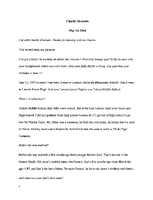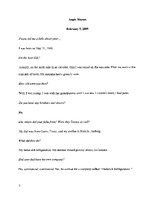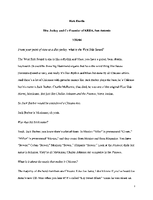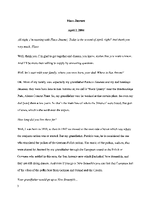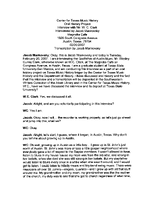Interview with Ernie Durawa, December 29, 2004 - transcript
Description
Allen Olsen interviews Ernie Durawa.
Ernie explains the bajo for Doug Sahm. He talks about the West Side Sound. He talks about his early life and musical influences. He talks about his time playing conjunto at clubs and eventually blues music in San Antonio. He discusses the Charlie Alvarado shooting incident and how he was as a person when he knew him. He tells an unnerving story about Jimmy Casas. He talks about his friendship with Doug Sahm and tells stories throughout their career. He talks about rock and roll and conjunto music. He talks about how he had to learn to read music.
Ernie explains the bajo for Doug Sahm. He talks about the West Side Sound. He talks about his early life and musical influences. He talks about his time playing conjunto at clubs and eventually blues music in San Antonio. He discusses the Charlie Alvarado shooting incident and how he was as a person when he knew him. He tells an unnerving story about Jimmy Casas. He talks about his friendship with Doug Sahm and tells stories throughout their career. He talks about rock and roll and conjunto music. He talks about how he had to learn to read music.

